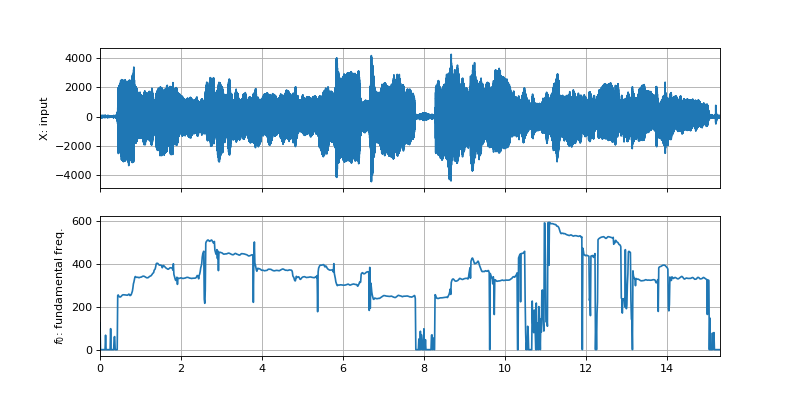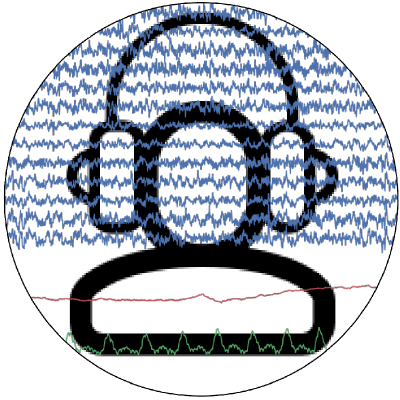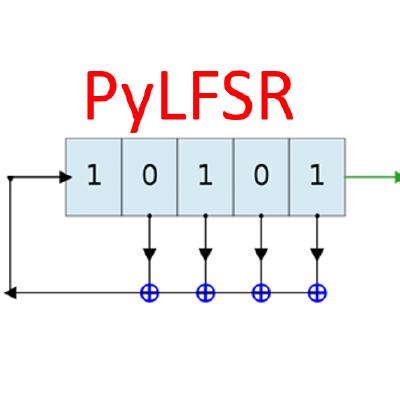spkit.f0_detection¶
- spkit.f0_detection(x, fs, winlen, nfft=None, overlap=None, window='hann', thr=-10, f0min=0.01, f0max=None, f0err=1, return_cand=False)¶
Fundamental frequency detection using TWM
Fundamental frequency detection of a signal using TWM algorithm
- Parameters:
- x1d-array - input signal
- fs: sampling rate
- winlen: window length for analysis
- overlap: overlap of windows
: if None then winlen//4 is used (25% overlap) : shorter overlap can improve time resoltion - upto an extend
- window: analysis window (default = hann)
: if None, rectangular window is used
- nfft: FFT size, should be >=winlen and power of 2
: if None - nfft = 2**np.ceil(np.log2(len(n)))
- thr: threshold for selecting frequencies (in negative dB) -default =-10
- f0min: minimum f0 frequency in Hz (default=0.01)
- f0max: maximim f0 frequency in Hz - if None (default)=fs/2
- f0err: error threshold in the f0 detection (default 1)
- return_cand: bool, if True, returns all candidate frequencies in given range (f0min<=f0cand<=f0max)
: with correspoding magnitude and phase : default False
- Returns:
- f0: fundamental frequencies of each window
: f0=0 is refered to frame where no fundamental frequency is found.
- if return_cand True:
- f0_cand: candidates of fundamental frequency
- f0_magmagnitude of candidates fundamental frequency
Examples
>>> import numpy as np >>> import matplotlib.pyplot as plt >>> import spkit as sp >>> import requests >>> from scipy.io import wavfile >>> #sp.f0_detection >>> path = 'https://github.com/MLEndDatasets/samples/raw/main/HWD_HP_hum_1.wav?raw=True' >>> req = requests.get(path) >>> with open('downloaded_file.wav', 'wb') as f: >>> f.write(req.content) >>> fs, x = wavfile.read('downloaded_file.wav') >>> t = np.arange(x.shape[0])/fs >>> f0 = sp.f0_detection(x,fs,winlen=fs//20) >>> t0 = t[-1]*np.arange(f0.shape[0])/(f0.shape[0]-1) >>> fig, (ax1, ax2) = plt.subplots(2, 1, gridspec_kw={'height_ratios': [1,1]},figsize=(10,5)) >>> ax1.plot(t,x) >>> ax1.set_xlim([t[0],t[-1]]) >>> ax1.set_ylabel('X: input') >>> ax1.grid() >>> ax1.set_xticklabels('') >>> ax2.plot(t0,f0) >>> ax2.set_xlim([t0[0],t0[-1]]) >>> ax2.set_ylabel(r'$f_0$: fundamental freq.') >>> ax2.grid() >>> ax2.set_label('time (s)') >>> plt.show()






